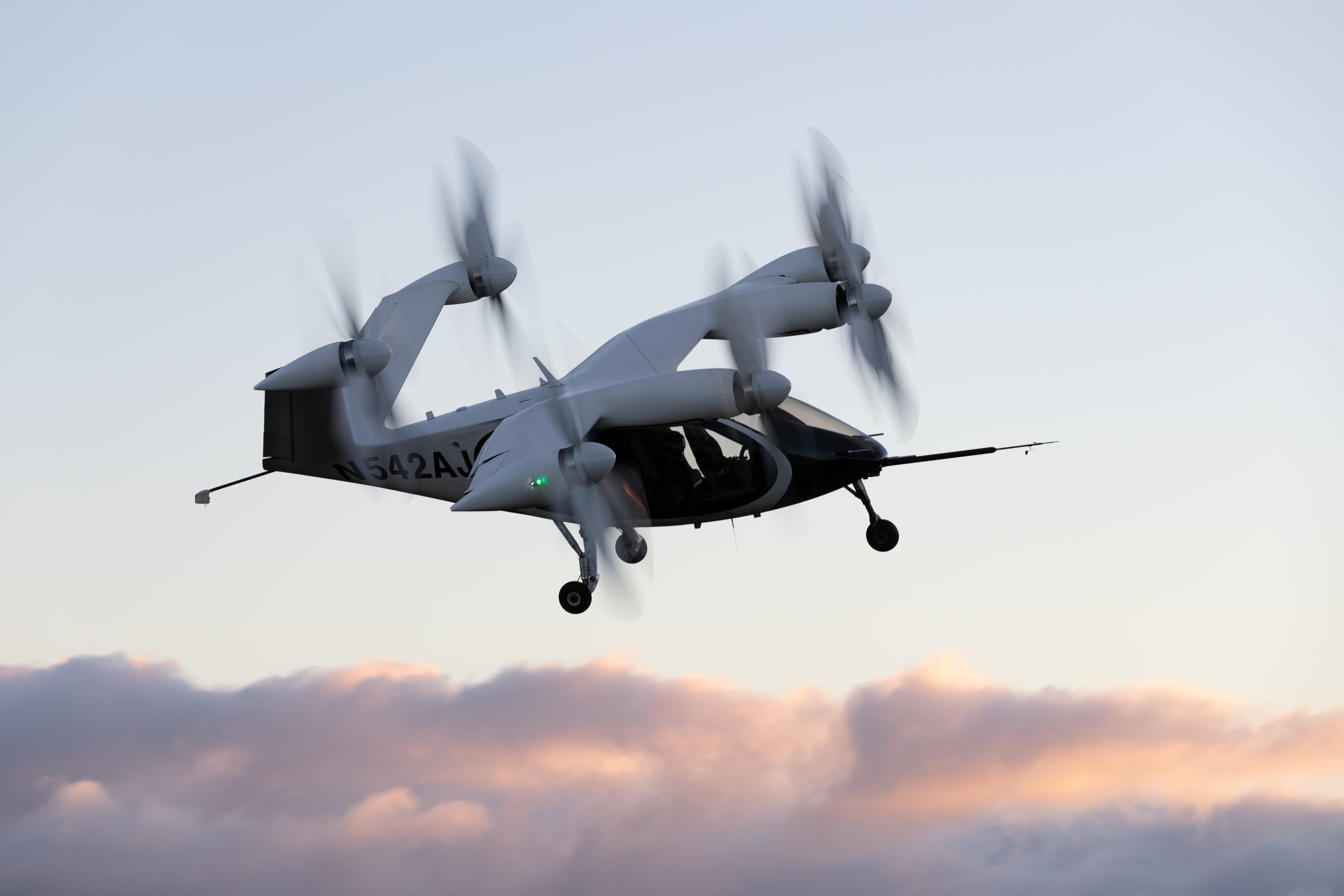Click Here to View This Page on Production Frontend
Click Here to Export Node Content
Click Here to View Printer-Friendly Version (Raw Backend)
Note: front-end display has links to styled print versions.
Content Node ID: 419308
Next year will see Joby Aviation fully engaged in the type certification process for its four-passenger eVTOL aircraft, with the FAA expected to accept the means of compliance (MoC) for the process during the first half of 2022. In a recent briefing to update reporters and others on progress with its plans to bring the all-electric vehicle into commercial service during 2024, Greg Bowles, the U.S. company’s head of government and regulatory affairs, said that it has been working on its Part 23 certification plans so that it will be ready to file its application as soon as the MoC is confirmed by the aviation safety agency.
Joby’s head of programs and systems engineering, Didier Papadopoulos, explained that once the MoC is agreed to, plans to test all aircraft systems and components will be finalized; then the tests will get underway and the results will be analyzed. Finally, the test results will be verified by the FAA, whose own test pilots will fly the aircraft before the type certificate is issued.
“The path to certification is not always as linear as that sounds, because the aircraft has many components and systems that are likely building blocks,” said Papadopoulos. The company is using an integrated test laboratory to assemble and evaluate all hardware and software before it is flown together as part of a complete prototype.
For example, the Joby eVTOL’s V-shaped tail must be able to sustain the required ultimate limit, beyond normal operating requirements, and load without failure for at least three seconds. The evaluation process starts with the analysis of the tail design before a layered testing approach is taken for all its component parts.
Similarly, with the aircraft’s battery, Papadopoulos explained, testing must establish beyond doubt that no single point of failure across the entire power system can prevent the aircraft from flying safely and landing. This means that the design must not depend on any single primary source for power storage or distribution. Papadopoulos was formerly with Garmin and instrumental in developing its acclaimed Autoland system, which gets aircraft safely on the ground in the event that the pilot faces a serious emergency.
When Bowles joined Joby in April 2019, he brought to the start-up valuable firsthand experience with the type certification process. During more than 14 years with the General Aviation Manufacturers Association, he served as co-chair of the FAA’s Part 23 Reorganization Aviation Rulemaking Committee, which built the foundation for the Small Airplane Revitalization Act that was enacted in 2013. From November 2012 through the end of 2019, he also chaired standards organization ASTM International’s F44 committee on general aviation aircraft.
Bowles told the November 16 briefing that before these significant changes, “Part 23 rules had been seen as stagnant and based on prescriptive and outdated regulations." As a result of what he described as “a global effort to update them so that the focus is on safety intent,” the emerging advanced air mobility sector now has the means to certify electric aircraft capable of vertical flight, and it was this legislation that cleared the way for Joby, which started its work back in 2011, to file its initial application for type certification in 2018.
Given that several of the companies in the race to bring eVTOL aircraft into revenue service less than three years from now, some observers are questioning whether some of these contenders have allowed enough time to clear the key regulatory steps, including type certification. “De-risking our program was really important to us, and that’s why we spent a decade working on this,” said Bowles when quizzed about whether rivals might fall behind. “Having the certification basis in place back in 2020 gave us the confidence to go forward.”
Beyond type certification, Joby is working on its application for the Part 135 air operator certificate it will need to fulfill its ambitions to be a vertically integrated air mobility service provider. This will involve recruiting and training pilots against a backdrop of a widely reported shortage of flight crew.
Bowles pointed out that while scheduled airlines governed by Part 121 rules require pilots with 1,500 hours of experience, Part 135 rules call for only 500 hours of commercial flying. “So there are plenty of pilots out there looking to build [flight] time,” he said, implying that eVTOL operations could become training grounds for the airlines, rather than the other way around. Joby plans to launch its own flight training academy.
“Pilots will love this aircraft,” predicted former FAA administrator Dan Elwell, who now sits on Joby’s advisory board and has flown the simulator of the company’s eVTOL. “There is also the lifestyle issue to be considered, and the potential to be home every night.”
